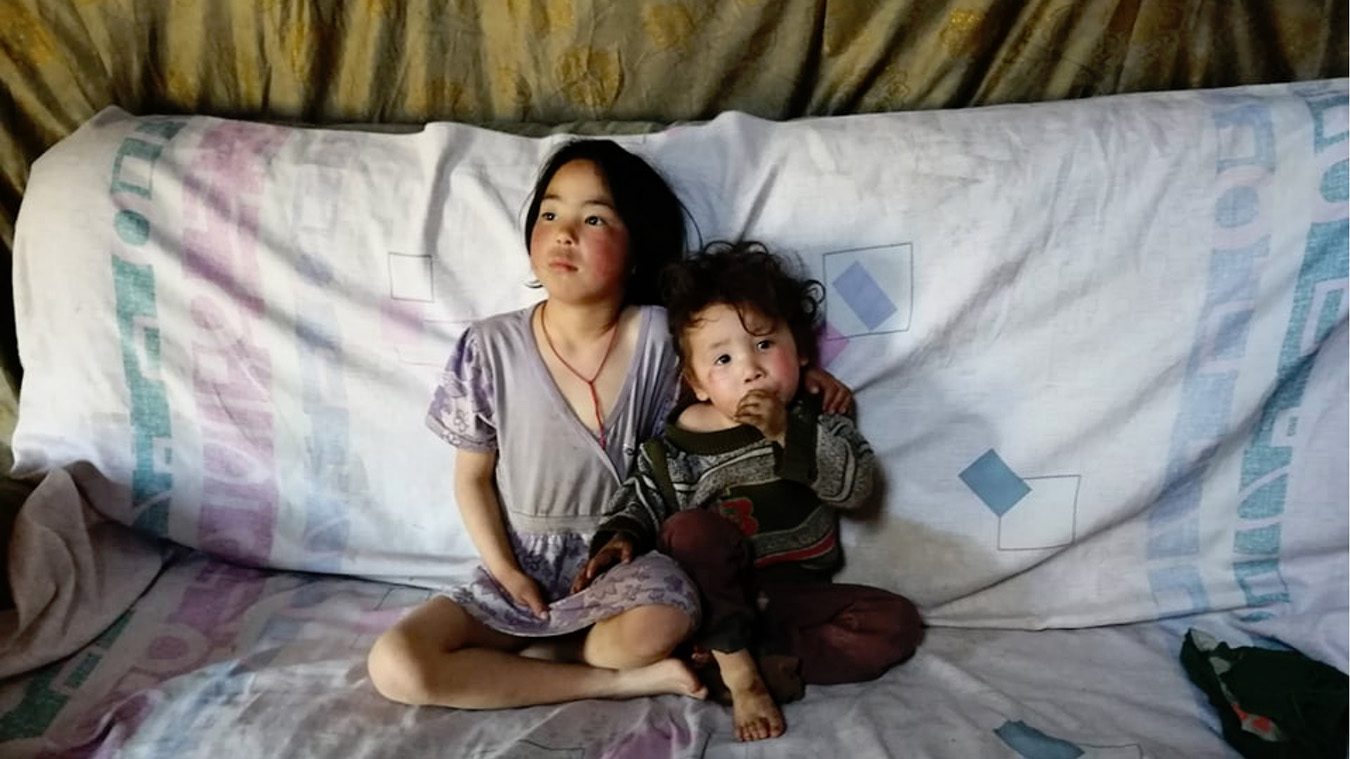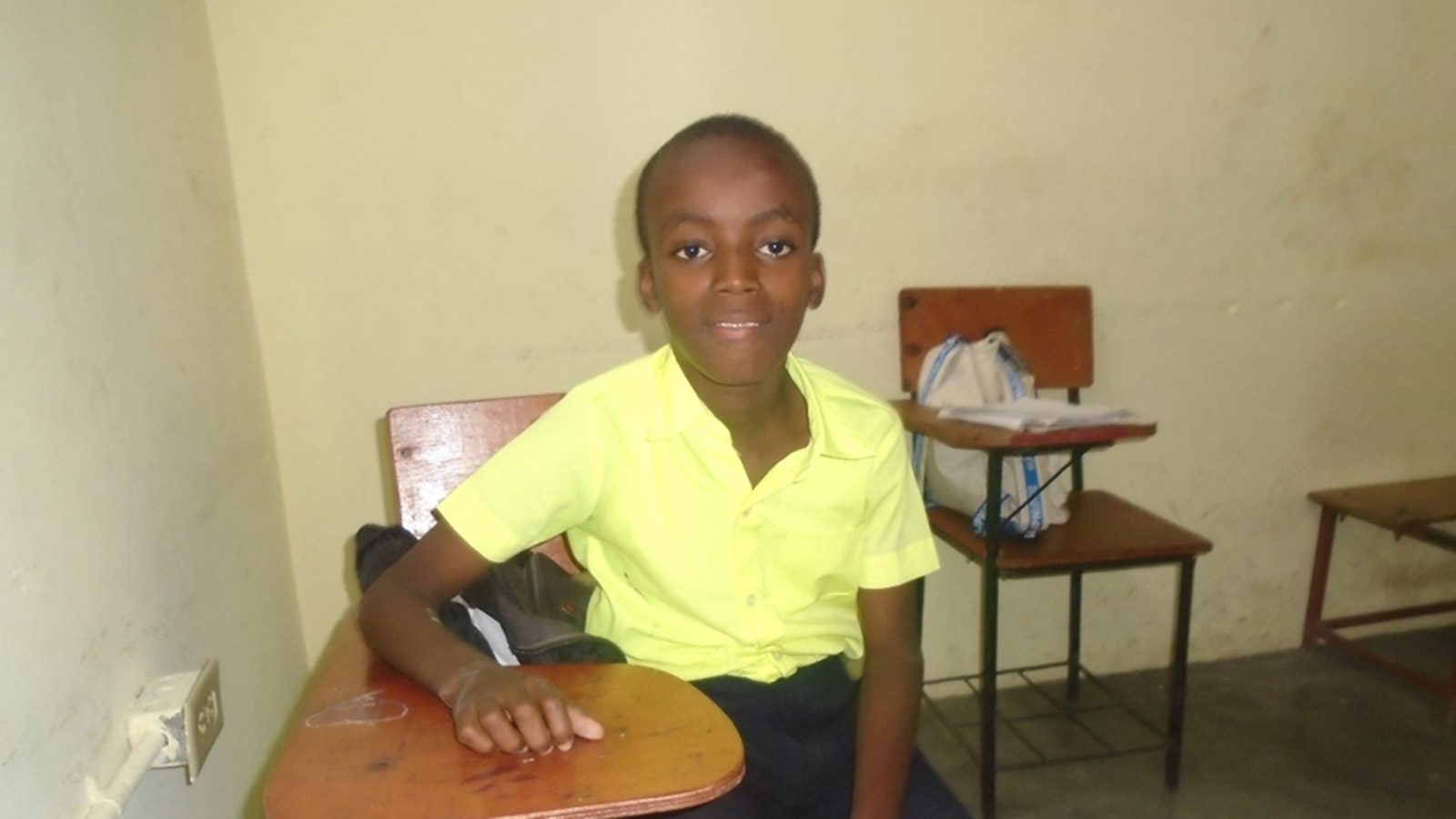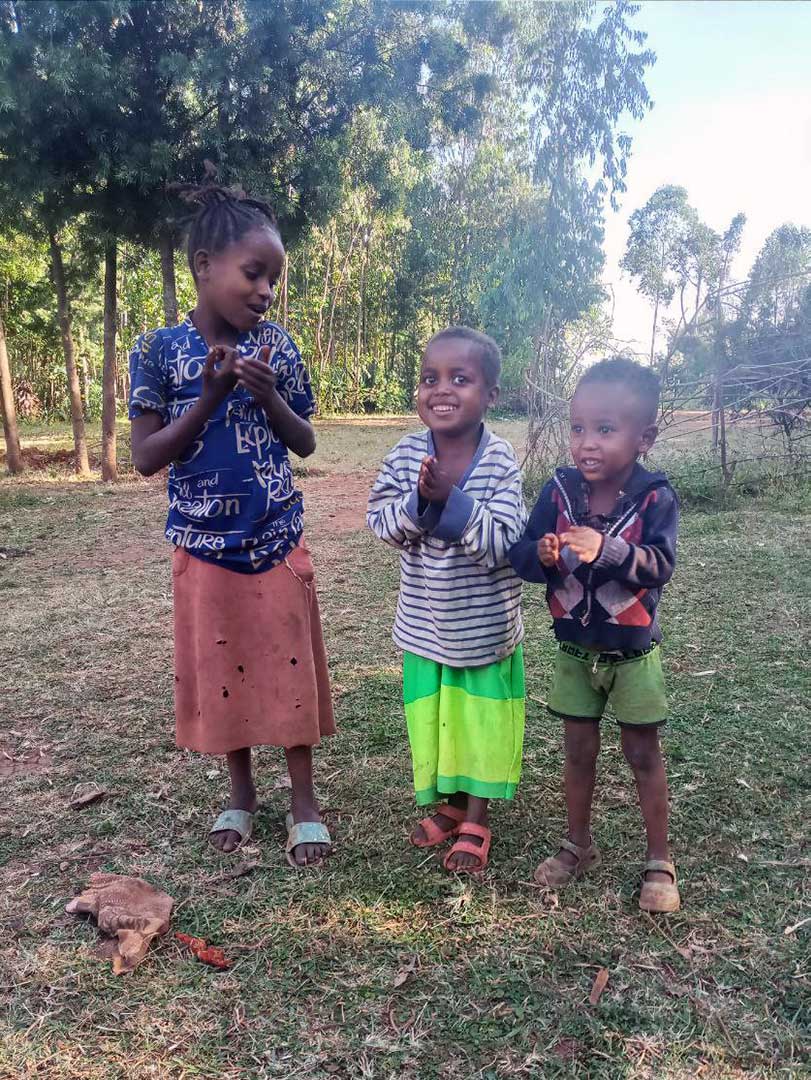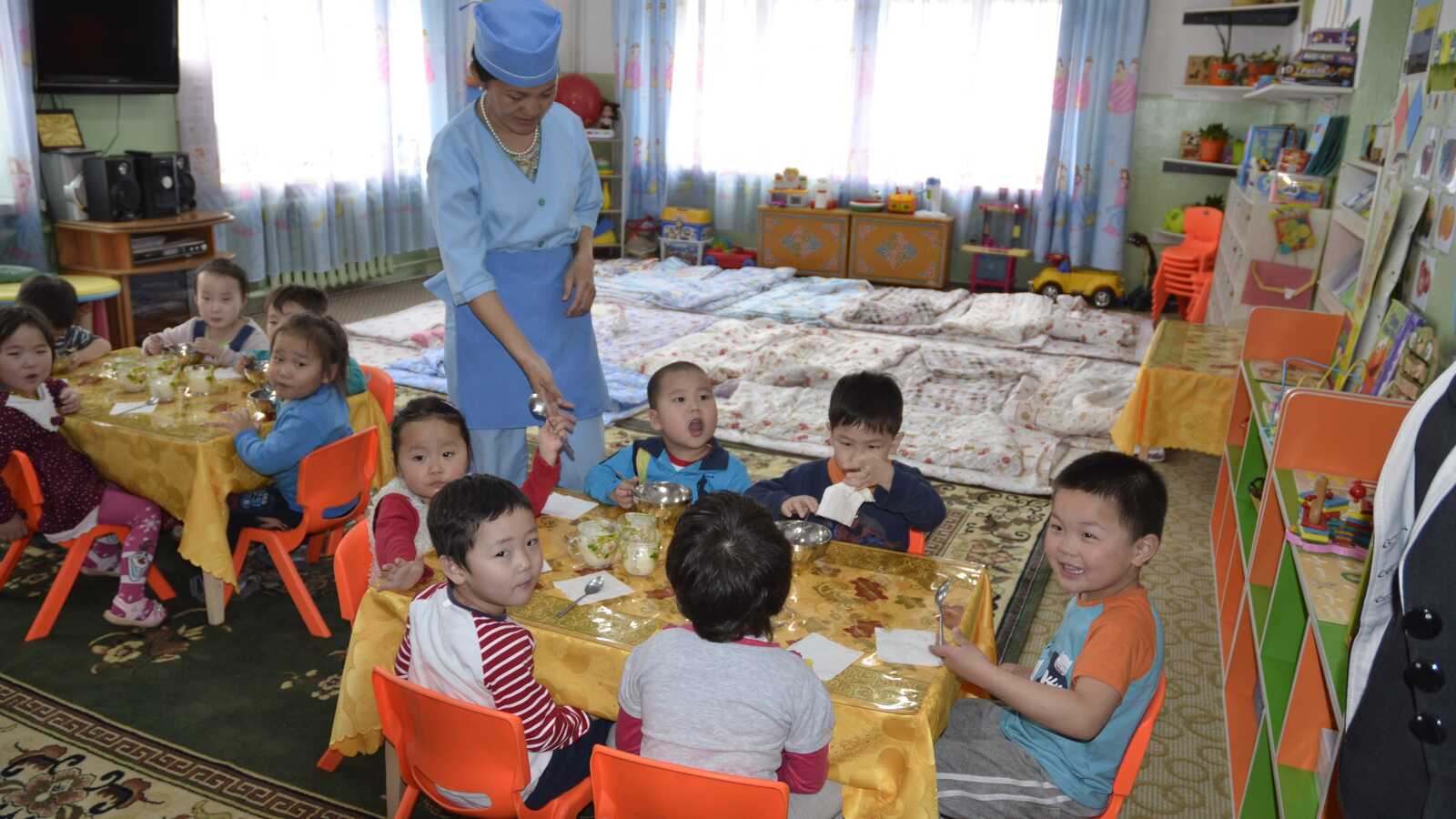Early one morning, Munkhbayar came to the steps of the Red Stone School in Mongolia. She was looking for food, refuge and help. It was the only place she felt safe… But today, both she and her brother are living in safety.
On a cold spring morning in Ulaanbaatar, Mongolia, a teacher walked up to the Red Stone School. She was arriving early to get the heaters going for the children who would arrive soon. And she saw something crumpled on the front steps of the school.
Hurrying forward, she was shocked to find a young female student named Munkhbayar, cold and hungry. Munkhbayar’s mother, an alcoholic, had disappeared for the last three days. Munkhbayar and her younger brother were alone and without food. Desperate, Munkhbayar made her way to the only place she could turn for help: the Red Stone School.
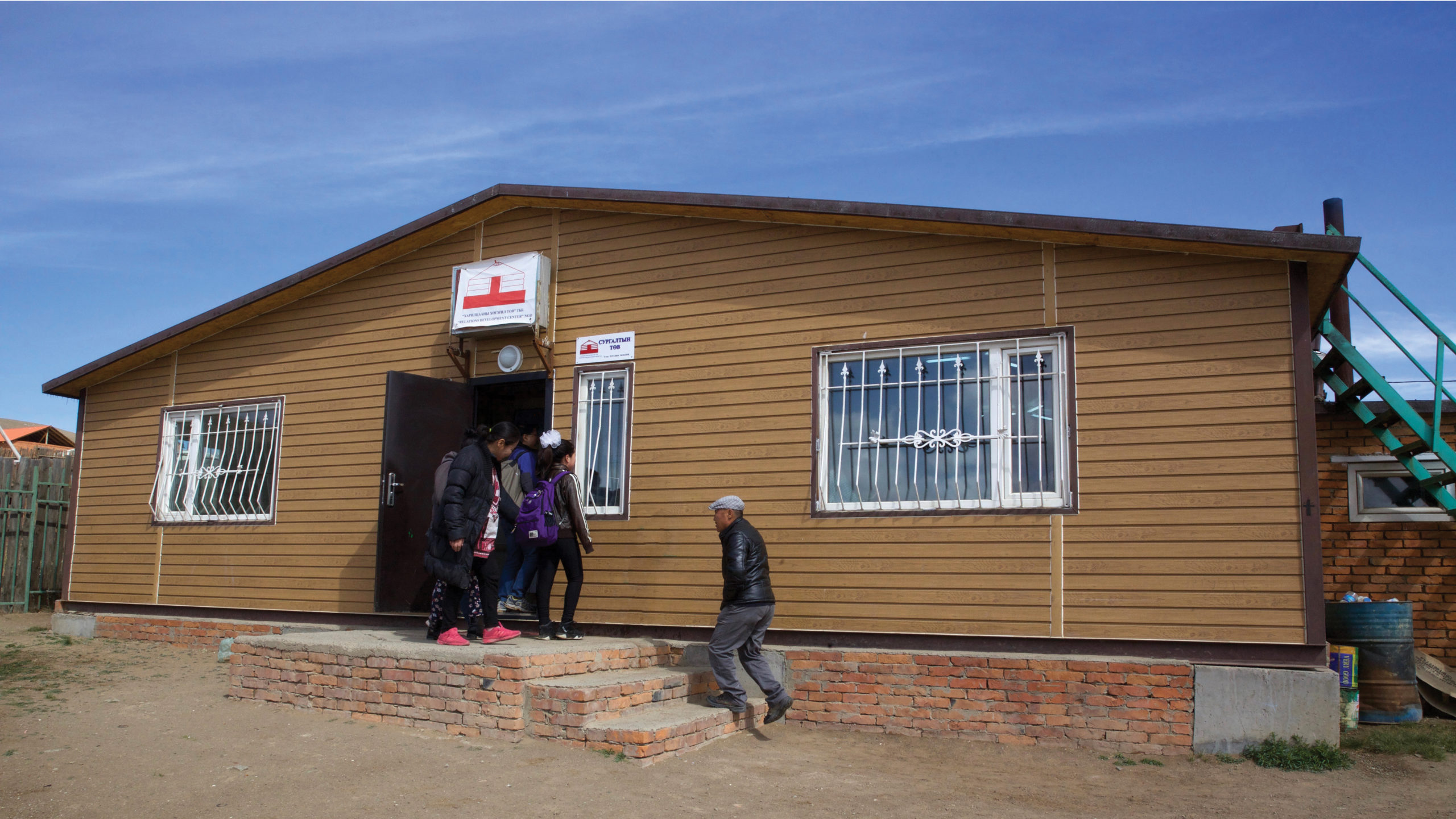
The Red Stone School
The Red Stone School sits half a mile outside the largest garbage dump in the city of Ulaanbaatar. It is a modest, wood-paneled building with a sturdy brick foundation. Though unobtrusive, it provides vital food, warmth and education for children who would otherwise spend their days scavenging through the rubbish for food or items to sell.
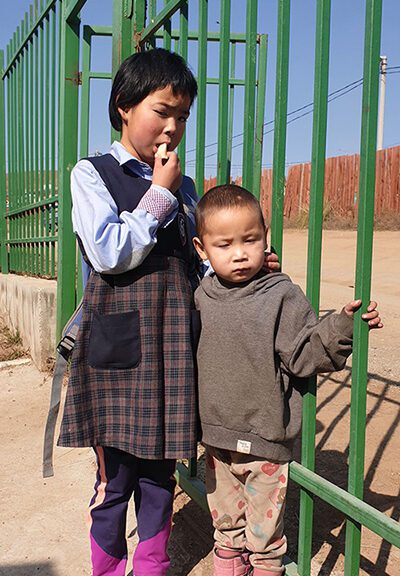
“The school for these children is more than a place for education,” says Paul Kim, Holt’s U.S. director of Korea and Mongolia programs. “To the kids, the school is a dream and an opportunity — something they couldn’t have imagined would be available for them. It’s a place where they can become kids again, where not only are they learning, but they know they will be safe and cared for and get a hot meal. It’s a place of refuge.”
This is exactly why Munkhbayar came looking for safety at the Red Stone School. The teacher contacted Holt social workers in Mongolia, who went to check on Munkhbayar’s living situation. Her mother was still absent, but her younger brother was home and similarly at risk. Our staff contacted the district social welfare officers, the police and our partner, the National Center Against Violence (NCAV). They quickly arranged for immediate shelter and care for the children.
After staying in the nurturing care of NCAV’s center in Ulaanbaatar, NCAV transferred Munkhbayar and her younger brother to the care of their older brother. He and his wife had a stable home and were glad to take them in. The district social welfare office has since determined that transferring custody to this older brother was in the best interests of the Munkhbayar and her younger brother.
Holt also worked with the police and social welfare office to have the mother admitted into an alcoholism rehabilitation facility.
“Rather than simply having her put in jail, staff worked with social services and police to get her into rehabilitation,” Paul says. “There is only so much that can be done unless the person themself is really invested in beating the addiction.”
Alcohol in Mongolia
Alcoholism is a common problem in Mongolia, something Holt staff there see often. As a country, Mongolia has the one of the highest populations of alcoholics in the world — three times higher than Europe.
“For some of the families living here, alcoholism has greatly compounded their already difficult life. What is so especially cruel about this,” Paul says, “is that historically, the year-round consumption of alcoholic drinks was not a part of Mongolian culture. Traditionally men here would not be permitted to drink until after age 30. Even then, it was a mildly fermented mare’s milk, available only seasonally.”
But after Mongolia and the Soviet Union began forging close relations in the 1920s, everything changed. “With the Soviets came urbanization, industrialization and,” Paul says, “vodka.”
Munkhbayar’s mother, so far, is one casualty of the alcohol crisis in Mongolia. She did well at the alcohol rehabilitation facility and Holt staff were helping her work toward reunification with her children. However, she soon became involved with an alcoholic partner and relapsed. Our team continues to follow up with her, but her recovery is uncertain.
They Are Safe Now
The children remain in their care of their brother, where they are safe, happy and thriving. Their brother and his wife are now a part of Holt’s family strengthening program in Mongolia. Now they receive monthly support to help meet the children’s needs for education, nutrition and more.
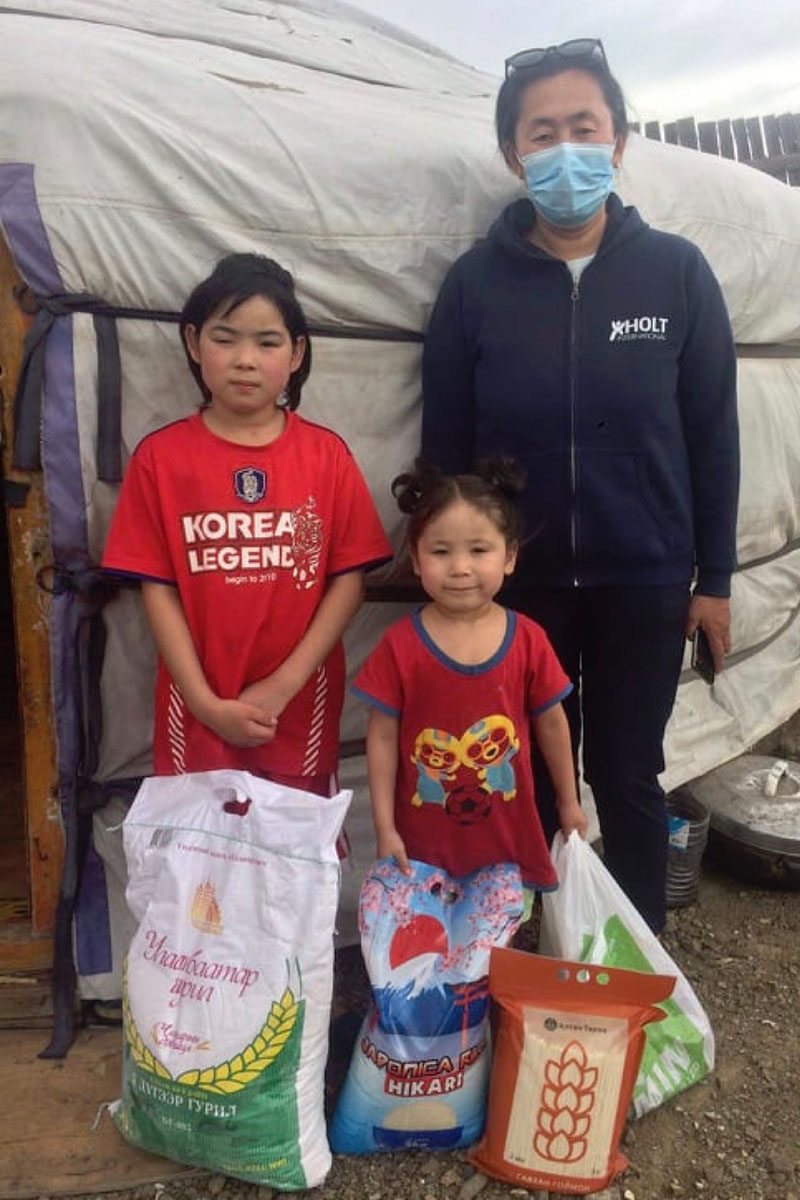
thriving in the care of their older brother and his family!
There has been another positive development of Munkhbayar and her brother’s new, safer living situation! They are also receiving regular medical attention for the first time. Because of this, doctors diagnosed Munkhbayar’s brother with a congenital heart defect that had previously gone undetected. While he may need corrective surgery, he is now in a nurturing environment with guardians who will advocate for him to get the care he needs.
Munkhbayar now has a Holt sponsor, who helps cover the cost of the education and food she receives at the Red Stone School. She now attends school without interruption, eager to learn and bolstered by a safe and loving environment at home.
Munkhbayar came to the Red Stone School when she was alone and scared, when she could not find safety anywhere else.
“This was the one safe spot that she knew in her life,” Paul says.
But today, because of the Red Stone School and the dedication of Holt sponsors, donors and Mongolia staff, Munkhbayar has many areas of safety in her life. May she never feel unsafe again.
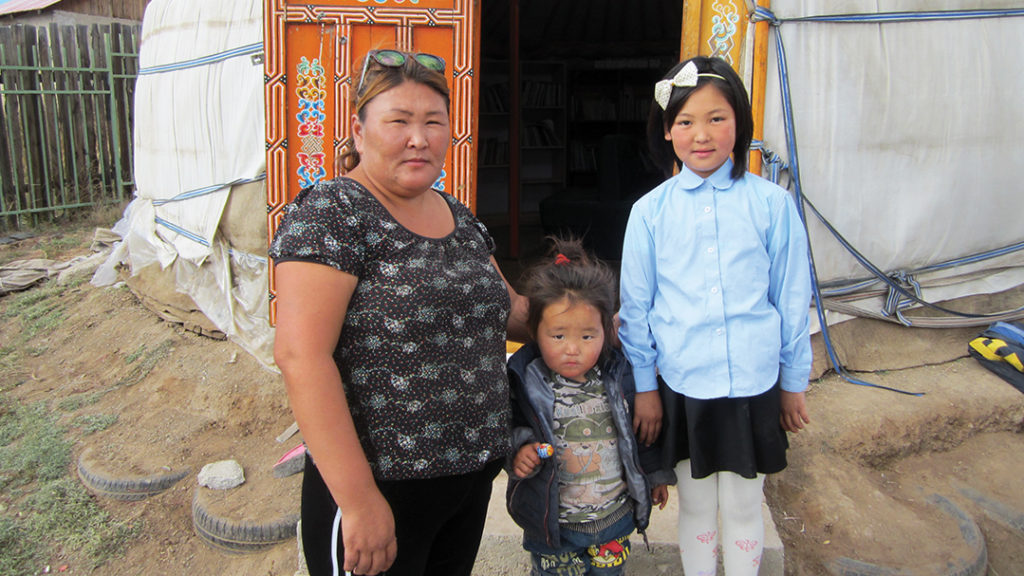
Help Children & Families in Mongolia
Some children in Mongolia live in or near the city’s largest garbage dump, don’t have enough food and can’t go to school. Winter in Mongolia can reach 40 degrees below zero, and children suffer while living in makeshift housing without even a warm coat or blanket. Your gift will help a child or family in Mongolia in greatest need.
